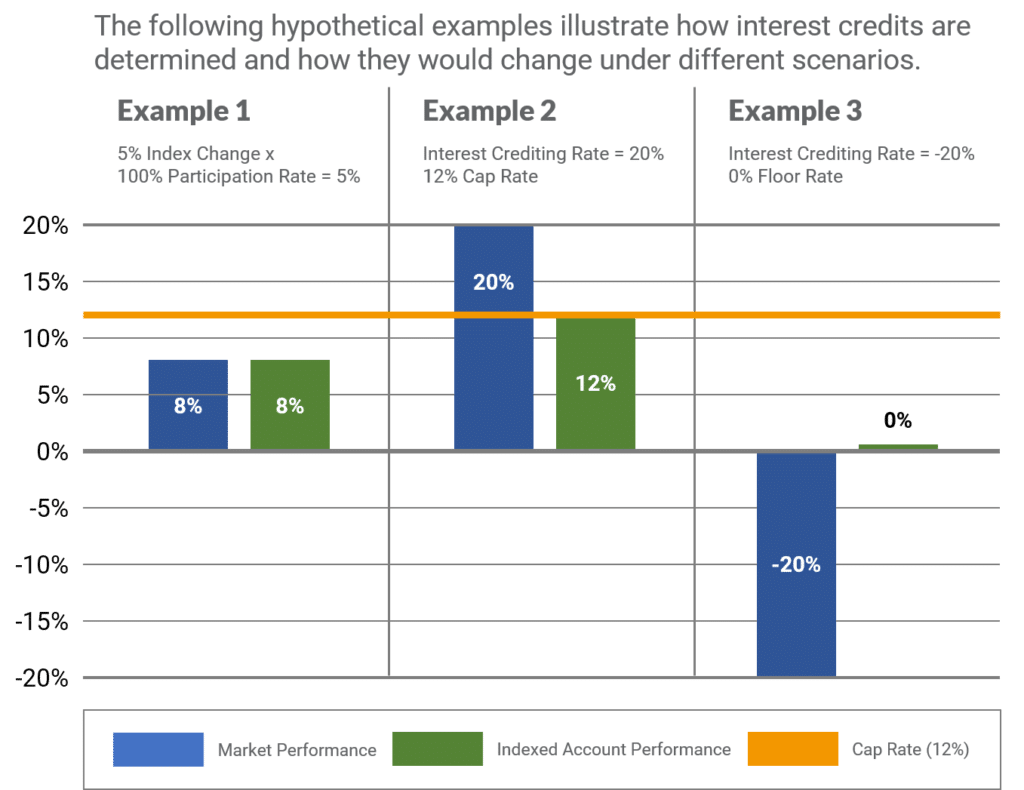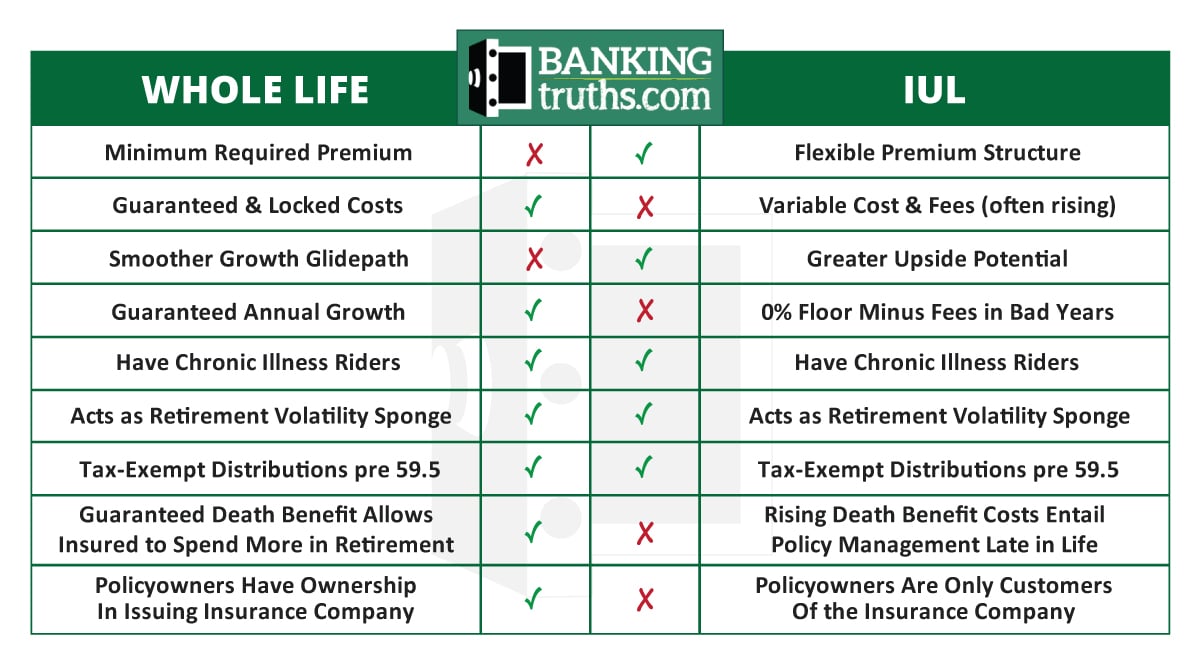All Categories
Featured
Table of Contents
Do they contrast the IUL to something like the Lead Total Amount Supply Market Fund Admiral Shares with no lots, an expenditure ratio (ER) of 5 basis points, a turn over ratio of 4.3%, and an outstanding tax-efficient document of distributions? No, they contrast it to some horrible actively handled fund with an 8% tons, a 2% ER, an 80% turnover ratio, and a terrible record of temporary funding gain distributions.
Mutual funds often make yearly taxable distributions to fund proprietors, even when the value of their fund has dropped in worth. Mutual funds not just need earnings coverage (and the resulting annual taxes) when the mutual fund is increasing in value, however can also impose income tax obligations in a year when the fund has dropped in value.
That's not exactly how common funds function. You can tax-manage the fund, harvesting losses and gains in order to lessen taxed circulations to the capitalists, however that isn't somehow going to alter the reported return of the fund. Only Bernie Madoff types can do that. IULs prevent myriad tax obligation traps. The ownership of shared funds may require the shared fund proprietor to pay approximated tax obligations.

IULs are simple to position so that, at the proprietor's fatality, the recipient is not subject to either revenue or estate taxes. The same tax reduction strategies do not function nearly too with common funds. There are countless, frequently pricey, tax obligation catches connected with the timed buying and selling of shared fund shares, traps that do not put on indexed life Insurance coverage.
Possibilities aren't very high that you're mosting likely to be subject to the AMT because of your shared fund circulations if you aren't without them. The rest of this one is half-truths at ideal. While it is true that there is no earnings tax due to your successors when they acquire the proceeds of your IUL plan, it is additionally real that there is no earnings tax due to your heirs when they acquire a mutual fund in a taxable account from you.
Iul Illustration
There are far better methods to avoid estate tax concerns than acquiring investments with reduced returns. Shared funds might cause revenue tax of Social Protection advantages.

The growth within the IUL is tax-deferred and may be taken as tax totally free income via car loans. The policy owner (vs. the shared fund manager) is in control of his or her reportable earnings, thus enabling them to lower and even get rid of the tax of their Social Protection benefits. This one is excellent.
Right here's another very little issue. It's real if you acquire a common fund for state $10 per share prior to the distribution date, and it disperses a $0.50 distribution, you are then mosting likely to owe tax obligations (most likely 7-10 cents per share) although that you have not yet had any type of gains.
Yet in the long run, it's truly regarding the after-tax return, not just how much you pay in taxes. You are going to pay more in taxes by utilizing a taxable account than if you purchase life insurance coverage. Yet you're additionally most likely mosting likely to have even more money after paying those tax obligations. The record-keeping demands for possessing mutual funds are significantly a lot more complex.
With an IUL, one's documents are maintained by the insurance coverage firm, duplicates of yearly declarations are mailed to the proprietor, and distributions (if any type of) are amounted to and reported at year end. This is also sort of silly. Certainly you need to keep your tax obligation documents in situation of an audit.
What Is Accumulation Value On Life Insurance
All you need to do is push the paper into your tax folder when it reveals up in the mail. Hardly a factor to purchase life insurance coverage. It resembles this guy has actually never purchased a taxable account or something. Shared funds are generally part of a decedent's probated estate.
On top of that, they are subject to the hold-ups and expenses of probate. The earnings of the IUL plan, on the other hand, is always a non-probate distribution that passes outside of probate directly to one's named recipients, and is as a result not subject to one's posthumous lenders, undesirable public disclosure, or similar hold-ups and prices.
Medicaid incompetency and lifetime revenue. An IUL can provide their owners with a stream of revenue for their whole life time, regardless of exactly how long they live.

This is useful when organizing one's affairs, and converting assets to revenue prior to an assisted living facility confinement. Mutual funds can not be transformed in a similar way, and are practically always taken into consideration countable Medicaid properties. This is one more silly one promoting that bad individuals (you know, the ones that need Medicaid, a federal government program for the poor, to spend for their nursing home) need to make use of IUL rather of mutual funds.
Universal Life Insurance Death Benefit Options
And life insurance policy looks awful when contrasted rather versus a pension. Second, individuals that have cash to purchase IUL above and past their retirement accounts are going to need to be horrible at handling money in order to ever before get approved for Medicaid to spend for their nursing home costs.
Persistent and incurable health problem cyclist. All policies will certainly allow an owner's easy access to cash money from their plan, frequently forgoing any type of surrender charges when such people suffer a serious illness, require at-home treatment, or become constrained to an assisted living facility. Common funds do not give a similar waiver when contingent deferred sales fees still apply to a mutual fund account whose proprietor requires to offer some shares to money the costs of such a stay.
Universal Life Insurance Expires When
Yet you get to pay more for that benefit (motorcyclist) with an insurance plan. What a large amount! Indexed universal life insurance policy offers survivor benefit to the beneficiaries of the IUL owners, and neither the owner nor the recipient can ever shed money because of a down market. Mutual funds give no such guarantees or fatality benefits of any type of kind.
Currently, ask yourself, do you really require or want a fatality advantage? I absolutely do not need one after I reach financial self-reliance. Do I want one? I intend if it were economical enough. Obviously, it isn't low-cost. Generally, a buyer of life insurance coverage pays for truth cost of the life insurance coverage advantage, plus the costs of the plan, plus the earnings of the insurer.
Maximum Funded Life Insurance Contract
I'm not entirely certain why Mr. Morais included the entire "you can not lose cash" once more here as it was covered rather well in # 1. He just wished to duplicate the best marketing point for these things I intend. Again, you don't shed nominal bucks, yet you can shed real bucks, as well as face major possibility expense because of reduced returns.

An indexed universal life insurance coverage plan proprietor might exchange their plan for an entirely various policy without setting off income tax obligations. A shared fund owner can stagnate funds from one shared fund business to one more without marketing his shares at the previous (thus triggering a taxed event), and repurchasing new shares at the last, usually based on sales fees at both.
While it holds true that you can exchange one insurance coverage for one more, the reason that people do this is that the initial one is such a dreadful policy that also after getting a brand-new one and going with the early, adverse return years, you'll still come out ahead. If they were marketed the best plan the very first time, they should not have any type of need to ever exchange it and experience the early, adverse return years again.
Latest Posts
Universal Life Insurance Company Ratings
Universal Retirement Protection
Guaranteed Universal Life Policy